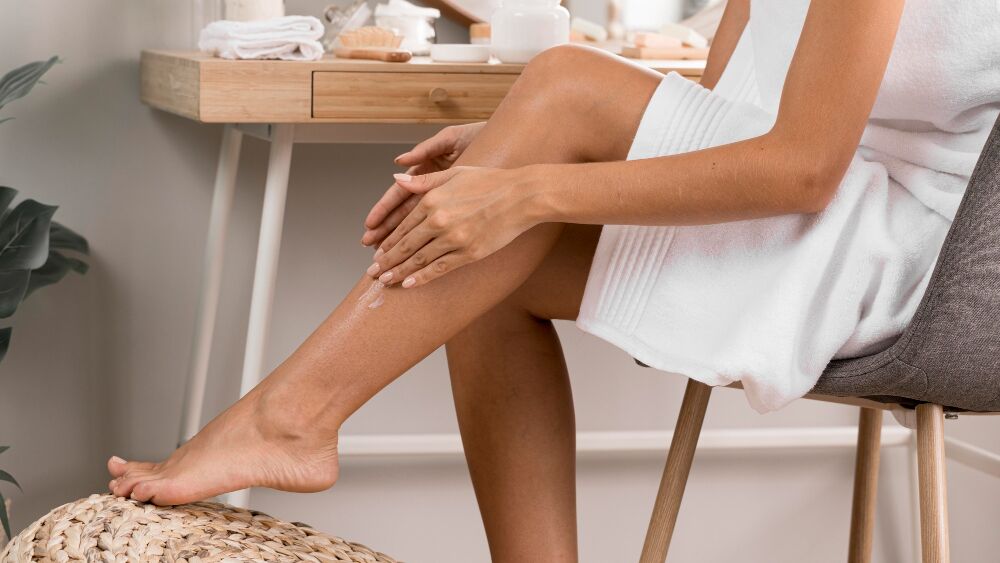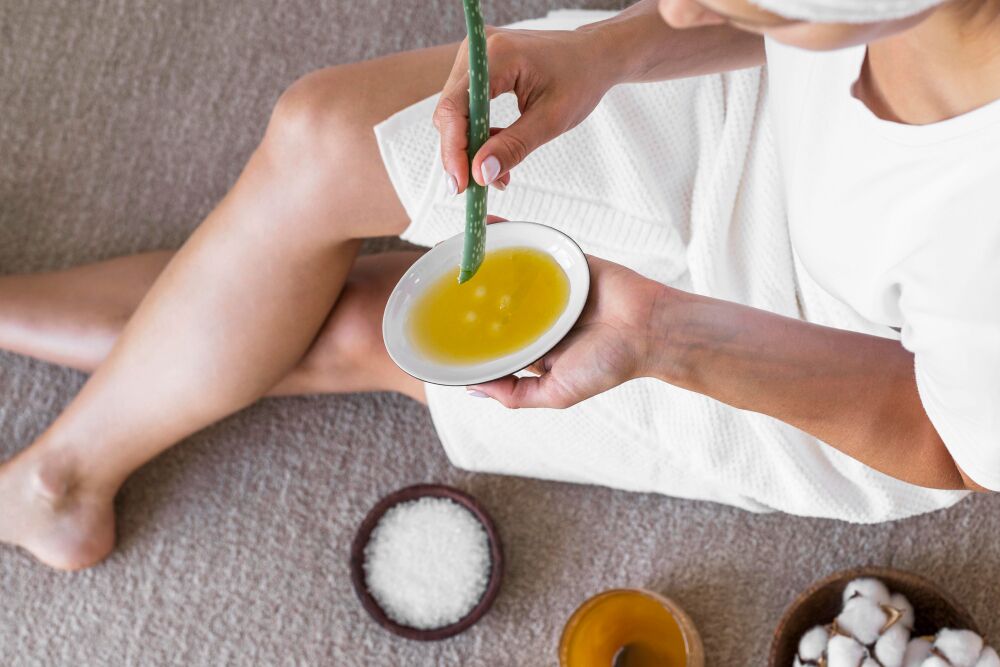Choosing the Best Bra Material for Sensitive Skin

For many women, finding the perfect bra is an ongoing quest. But for those with sensitive skin, the search becomes even more crucial. The constant contact with a bra can trigger irritation, itching, redness, and even breakouts. But fear not! By understanding the best bra materials for sensitive skin and some key design features, you can find a bra that provides both comfort and support.
Why Does Bra Material Matter for Sensitive Skin?
Conventional bra materials can irritate sensitive skin for several reasons:
- Harsh Chemicals: Conventional bra fabrics often undergo processing with dyes, finishes, and formaldehyde resins. These chemicals can trigger allergic reactions or simply irritate delicate skin.
- Synthetic Fibers: Materials like polyester and nylon can trap sweat and heat, leading to chafing and discomfort. They can also lack breathability, which can further irritate sensitive skin.
- Seams and Tags: Rough seams and scratchy tags can rub against the skin, causing irritation and even breaking down the skin barrier.
The Gentle Giants: Best Bra Materials for Sensitive Skin
Nature offers a treasure trove of materials that are soft, breathable, and gentle on sensitive skin. Here are the top contenders:
- Organic Cotton: This natural fiber reigns supreme for sensitive skin. It’s naturally hypoallergenic, breathable, and incredibly soft. Opt for organic cotton to avoid any residual chemicals used in conventional cotton processing.
- Bamboo Viscose: This eco-friendly fabric is derived from bamboo pulp and boasts incredible softness. It’s naturally antibacterial and moisture-wicking, keeping you cool and comfortable.
- Tencel (Lyocell): Another sustainable option, Tencel is made from cellulose and known for its luxurious feel and excellent moisture management. It’s gentle on skin and perfect for year-round wear.
- Merino Wool: This fine wool offers superior temperature regulation and natural odor resistance. While wool can be itchy for some, merino wool is a finer, softer option that can be comfortable against sensitive skin. Look for blends with cotton or Tencel for added comfort.
- Silk: The epitome of luxury, silk is naturally hypoallergenic and incredibly soft. However, silk bras can be delicate and require special care.
Beyond Material: Design Features for Sensitive Skin Comfort
While material is key, several design features can further enhance comfort for sensitive skin:
- Seamless Construction: Opt for seamless bras that eliminate the irritation caused by seams and stitching.
- Wire-Free Support: Underwire bras can dig into sensitive skin. Consider wireless styles that provide gentle support using strategically placed fabrics and cuts.
- Wide Straps: Opt for wider, cushioned straps to distribute weight more evenly and reduce pressure on shoulders.
- Tagless Design: Look for bras with printed or heat-sealed labels to eliminate scratchy tags.
- Moisture-Wicking Lining: A lining made from a moisture-wicking material like bamboo viscose or Tencel can help keep sweat and irritation at bay.
Shopping Tips for the Sensitive Skin Warrior
Finding your perfect bra requires a bit of detective work. Here are some tips to guide your search:
- Read Labels Carefully: Pay close attention to the fabric content and avoid any materials with harsh chemicals like formaldehyde.
- Look for “Sensitive Skin” Labels: Many brands offer bra lines specifically designed for sensitive skin. These will often prioritize organic cotton or other gentle materials.
- Shop Online with Good Return Policies: Finding the right fit is crucial. Look for retailers with generous return policies so you can try on different styles and sizes at home without stress.
- Invest in Quality: While a comfortable bra might cost a bit more upfront, it will last longer and provide significantly better comfort compared to a budget option made with harsh materials.
Beyond the Store: Caring for Your Sensitive Skin Bra
- Gentle Washing: Hand wash your bras with a gentle detergent or use a delicate cycle in a mesh laundry bag. Avoid harsh chemicals and fabric softeners.
- Air Drying: Skip the dryer! Let your bra air dry completely to prevent shrinkage and maintain its shape.
- Rotate Your Bras: Don’t wear the same bra every day. Allow each bra to air out completely between wears to prevent the build-up of sweat and bacteria.
Conclusion: Comfort and Confidence, Hand in Hand
By prioritizing gentle materials, mindful design features, and proper care, you can find a bra that offers both comfort and support for your sensitive skin. Remember, a comfortable bra shouldn’t be a luxury; it’s a necessity. With the right approach, you can banish bra-related irritation and experience the confidence and freedom that comes with feeling good in your own skin.
Additional Considerations:
- Finding the Right Fit: A good fitting bra is crucial for comfort, regardless of material. Consider getting professionally fitted to ensure you’re wearing the correct band size and cup size. A properly fitting bra won’t dig in, pinch, or ride up, minimizing irritation.
- Body Changes: Our bodies are constantly changing, so it’s important to be mindful of how your bra fits over time. Re-evaluate your size regularly and adjust your bra wardrobe as needed.
- Special Needs: If you have specific needs, like post-surgery or breastfeeding support, look for bras designed specifically for those purposes. These bras often prioritize comfort and use gentle materials.
Resources for Sensitive Skin Bra Shopping
Here are some resources to help you find the perfect bra for your sensitive skin:
- Online Retailers: Several online retailers specialize in bras for sensitive skin. These brands often offer detailed information about materials and construction.
- Sustainable Clothing Brands: Many sustainable clothing brands prioritize organic materials and eco-friendly practices, which often translates to gentle fabrics suitable for sensitive skin.
- Lingerie Boutiques: Specialty lingerie boutiques often have knowledgeable staff who can help you find a bra that fits your needs and preferences.
FAQs and Further Topics
-
Can I wear lace bras with sensitive skin? The answer depends. Traditional, synthetic lace can be itchy. However, some brands offer softer lace options made with cotton or silk blends. Pay close attention to the specific materials within the lace. A lining can also provide a barrier between the lace and your skin. Patch-testing a lace bra before full wear is recommended.
-
What about sports bras? Sports bras need extra attention, as sweat and friction are concerns. Look for ones with moisture-wicking fabrics like bamboo viscose, blended with a bit of spandex for stretch. Seamless construction is ideal, and wider straps offer better support and comfort.
-
I get rashes under my breasts. Any tips? Rashes in those areas can be due to sweat, heat, yeast growth, or friction. Keep the area clean and dry, powder can help absorb moisture (avoid cornstarch-based powders). Invest in bras with moisture-wicking lining and breathable fabrics. If the rash doesn’t improve, consult a dermatologist.
-
Is there a “best” bra color for people with sensitive skin? Lighter colors, particularly undyed options, are generally best. Dyes can sometimes irritate the skin. However, if your bra doesn’t cause irritation, color is a personal preference!
-
Are bralettes okay for sensitive skin? Bralettes, if made from gentle materials, can be incredibly comfortable. However, they may not offer the same support as a traditional bra. For larger busts, bralettes might not be suitable depending on your support needs.
-
Is it worth getting custom-made bras? For those with severe sensitivity, complex needs, or hard-to-fit sizes, custom-made bras are an option. Consult with a seamstress who specializes in lingerie – this can ensure the utmost comfort and a perfect fit.
Beyond Bras: Everyday Comfort
Keep in mind that a bra is just one part of the equation. Consider these additional elements for skin-friendly clothing:
- Laundry Detergent: Choose a gentle fragrance-free detergent or explore soap nuts (a natural alternative). Harsh chemicals on clothes can transfer to your skin.
- Fabric Softeners: Fabric softeners often leave chemical residue that can cause irritation. Look for natural alternatives or skip them altogether.
- Underwear: Opt for comfort! Natural, breathable fabrics like cotton are best.
- Overall Clothing Choices: When dealing with sensitive skin generally, avoid tight-fitting clothes that cause friction or trap heat and moisture.
Final Thoughts
Sensitive skin requires an individualized approach. Experiment, patch test everything, and prioritize what makes you feel comfortable and confident. It may take some trial and error, but once you’ve found your ideal fabric and fit, you might just forget you’re even wearing a bra.



